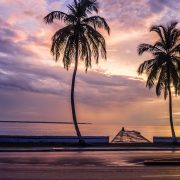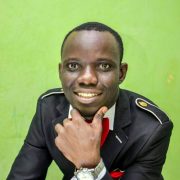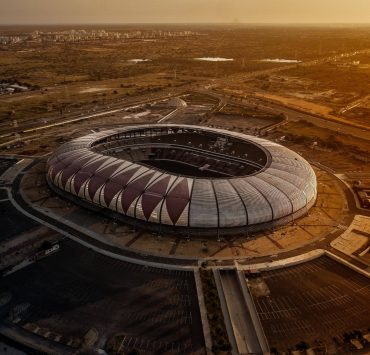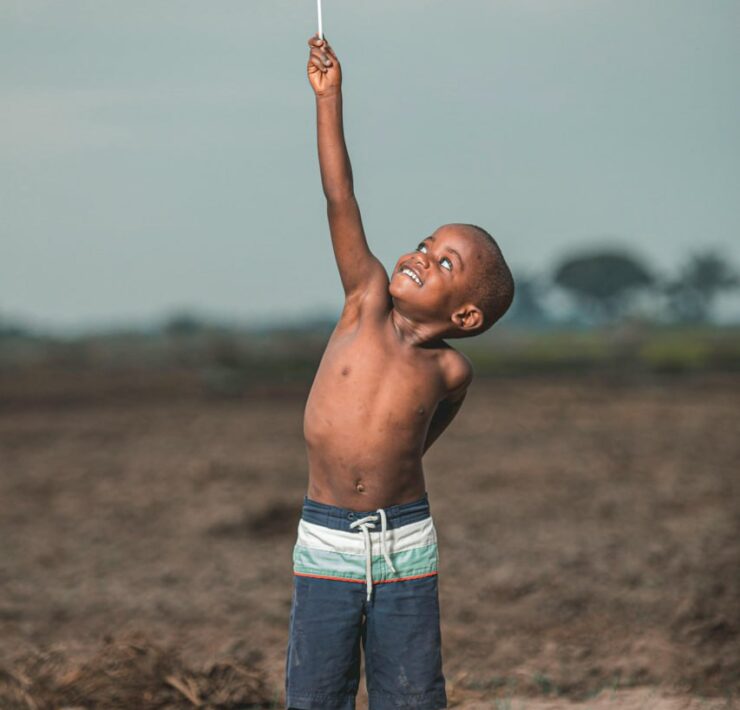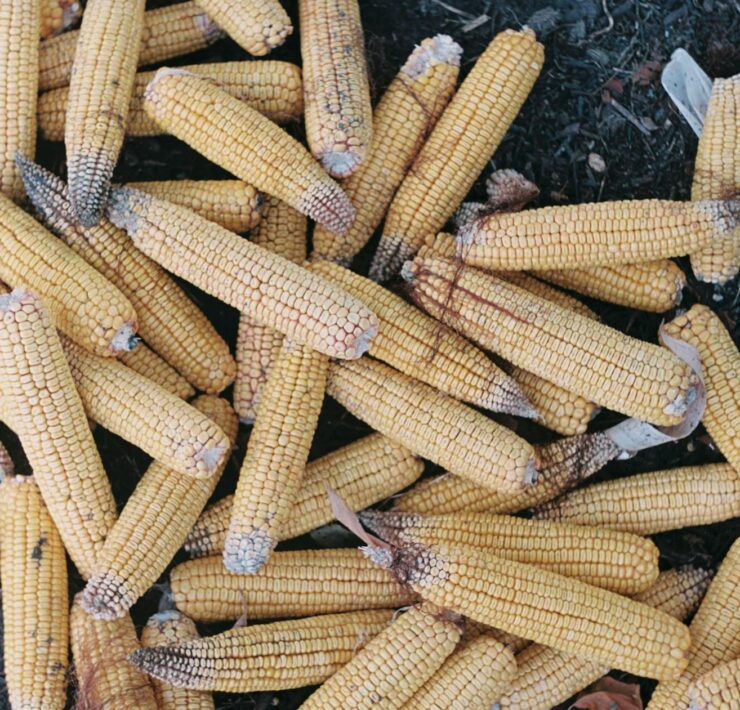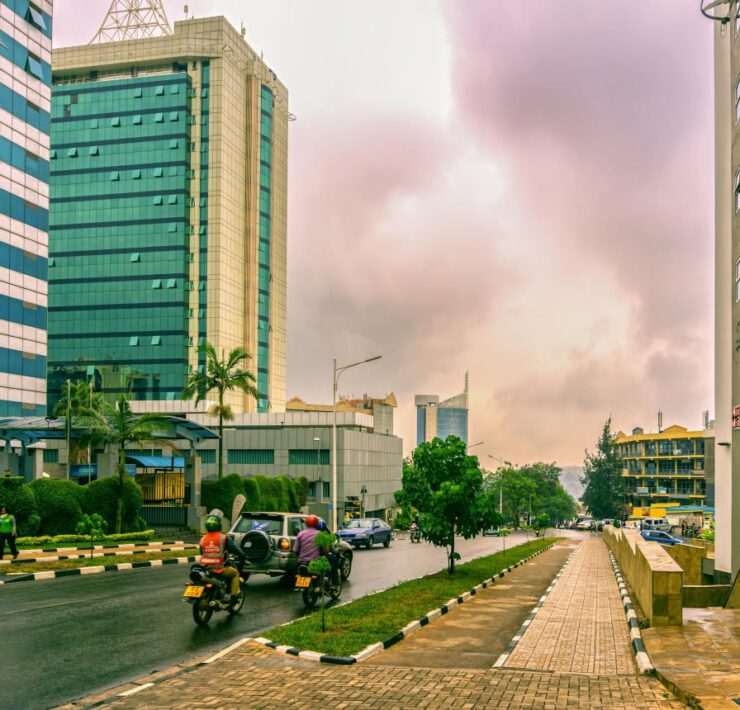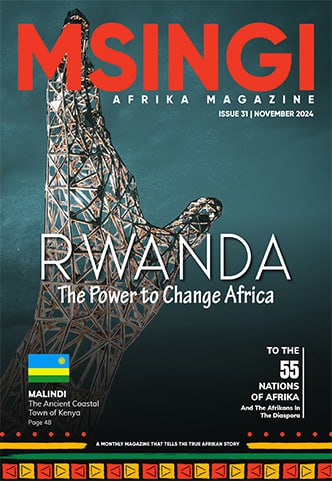
Chioma Phillips is the Editor of Msingi Afrika Magazine and…
Read Next
Please could you tell us a little bit about what is going on in Afrika concerning food sovereignty? You can also give us the Ghanaian context, and if you have a wider context that you can share about different countries so that people are aware of what is going on affecting Afrika directly and Afrikans in the Diaspora.
I volunteer for a civil society organization called Food Sovereignty Ghana, and Food Sovereignty Ghana was established in 2013. We are a civil society organization that is involved in the advocacy for human rights on issues about land, issues about access to water, and general issues on the environment and social justice. The issue of Genetically Modified Organisms (GMO) sort of became the flagship issue that we had become known for, because for the past six years we have been battling in the courts of Ghana, trying to steer our government and our policy makers away from the adoption of Genetically Modified Organisms in our agricultural regime. So, it seems like Food Sovereignty Ghana is only about GMO, but we advocate for issues of land rights, farmers’ rights, and all other issues that have to do with social justice.
 PIN IT
PIN ITObviously, food is very important to human beings, no matter your race, your creed, what you do, you have to eat, you have to replenish your body with energy. Food then becomes political, because this whole world is about power, as we have experienced as Afrikan nations who know what it is to be living in a post-colonial regime. Food sovereignty is an issue that is very important to every single Afrikan because it is about your rights to be able to grow what you want to eat, to be able to grow the types of food you want, and more issues than just simple food security. Food security is just about the availability of food, it does not matter what kind of food it is, as long as there is some food there, that means you are food secure. But food sovereignty goes beyond that. Are you eating the food you want to eat in a responsible manner? Are you eating food that was grown by not polluting the rivers and water bodies that are in the environs? Are you eating and growing food that did not cheat the labor that worked to create that food? So, there is a wider aspect of food sovereignty and we believe that is what Afrikan countries and Afrikan policy makers should be more aware of.
The issue of Covid came to show us that food sovereignty is very real, because you cannot afford to have food coming to you through your ports, because if there is anything that goes wrong with the geopolitics of this earth, then your people are going to suffer. So, food must come from as close a source as possible, and I think when you are doing that then you end up having to be more responsible. Because… if you want to grow that food then you are very likely not to pollute the river (in your area), but when you are disconnected with how food comes… You know there are all sorts of things that are done to food. Food is sprayed with different kinds of chemicals and so forth. Food sovereignty is a very important issue that every single Afrikan youth should be involved with in your mind.
Food sovereignty is about your dignity. It is not because the industrial suppliers want to produce maize so it means that everybody eats a certain maize which is grown because the next people who use it are from industry and so on and so forth. The decision of food is a personal one. I know you are from Kenya; it means that even within Kenya there are different areas with different food preferences and it does not mean that everybody has to eat the same thing because it is commercially viable. This is an issue that is taking place in every single Afrikan country, where the issue of power that comes behind food is being played real on the stage with different actors. We happen to be the actors on the side that says that food is a right, access to food is a basic human right, that the need to preserve the environment, the need to preserve the balance of the earth is what comes as a bigger priority to us than the branding of the food, and the marketing of the food, and the pricing of the food and so on and so forth. Because it is not a very obvious issue, it flies under the radar of people when we are discussing issues that affect Afrikans, but people need to know that there is a strong lobby to try and influence the kind of food systems that we have in our countries.
Afrika is the home of probably the greatest biodiversity on the planet, that means that we have seeds that our ancestors have used to feed themselves for millennia. There are different types of varieties and these varieties only exist because peasant farmers or small-scale farmers have kept these seeds, they have farmed these seeds in the different regions they have grown, and these seeds have come to us as a legacy of thousands of years of use by human beings on this planet. But unfortunately, the commercial lobby is reducing that biodiversity, because for commerce you are looking for certain traits in the seeds and so because there is a business behind the whole commerce, what happens is that the smaller less wanted varieties vanish, but that does not mean that that variety was not useful. Sometimes that variety is the one that is the most resistant to certain pests in the area; sometimes that variety is the one that is most able to withstand drought. And so, it is very important that we respect the rights of farmers to be able to save and exchange seeds, and what you will find is, in certain Afrikan countries, there is now legislation being introduced in order to fit into the global status quo that they want to establish, which is that we are just going to continue to be ‘hewers of wood and drawers of water’.
In order to make the most of our resources, and our great endowment, biodiversity is something that we must cherish. It is not a big deal to us to have a company come into Ghana, or Uganda, or Kenya, or Malawi, and all of a sudden find a seed that they find useful because of certain varieties and characteristics and then alter it a little bit genetically and patent that seed without giving any form of benefit sharing to the community that developed this seed over the centuries. That is the kind of politics that is going on in many Afrikan countries, it is the politics that is going on in Ghana, and as civil society organizations, we say that there must be another way we must be wise enough to realize that respecting the environment, living very closely with nature, is what is going to determine our ability to grow food from the soil in 10, 20, 30 years from now.
 PIN IT
PIN ITThat is true. Tell us about what you’re doing in terms of pushing back against Ghana’s decision as a government to go into the UPOV.
We have been doing advocacy against Ghana joining UPOV, which is the international convention for new plant varieties, and basically this is a very inflexible regime that makes you have to stick within certain guidelines that are determined through certain interests. They make you develop law, implement it into your country, which makes it, for instance, criminal for farmers to save, and exchange, and sell seeds because they want to create a regime where the business and the commerce can be applied to seeds. But we see seeds as a common good, just like the air that you breathe and the water that you drink.
In Ghana, currently we have been doing some advocacy for about 3,4,5 years now on the plant variety protection bill, which was recently passed by parliament, and is waiting for assent from the president. We have been against certain aspects of the bill and certain aspects were changed because of the advocacy that Food Sovereignty Ghana and our allies did to get the government to understand that there was some tweaking that needed to be done to the bill. For instance, in the old bill it said that the rights of a plant breeder would be immune to the constitution of Ghana, I think that used to be clause 23, and we had always been opposed to that because we felt the constitution of Ghana should be able to act on any plant breeder that comes into Ghana and whatever implications happen from their activities, the laws of Ghana should be able to be applied on that plant breeder. That was a development that we thought was positive that came out of the deliberations.
Unfortunately, and in a highly unprecedented manner, Ghana is trying to introduce a clause which says that there will be a 10-year minimum sentence for any farmer that is found exchanging, selling seeds that could be patented. Now, you and I have no idea of being able to determine what is a patented seed and what is a normal seed when it is placed in a market in a pile. If you go to Kangemi market or markets in Nairobi, anywhere in Afrika you see that the women pile seeds, they pile goods. How are we going to tell that this is a pile of patented seeds, and this is a pile of normal seeds? Such that if you go and plant that seed, according to the law, you stand to get a minimum 10-year sentence if you did not know and you exchanged that seed. It is getting into very murky waters, but basically a 10-year sentence, in the US I think it is a maximum of a 2-year sentence, even in a country where Monsanto operates so freely. So, any person who is found exchanging, or saving, or selling seeds that may happen to be patented, and most of these patented seeds happen to be created from a stock of seeds that were developed by communities over centuries, and in all the cases there is never a benefit sharing scheme for the community that developed this plant variety to benefit from the years of what they contributed to bringing it to have those characteristics.
It is an unfair regime. I cannot imagine how many Afrikan men and women would fall into this gap of someone who is found to be exchanging seeds, or saving seeds, or selling seeds. It can happen to you unknowingly. And in the US, there are judgment debts that have been handed over to farmers for seeds blown there by the wind or some other vector of transfer and they owe money to these commercial entities because it is like ‘we own the seed and what it produces’.
 PIN IT
PIN ITAfrikan societies are very much agrarian. We do not have to be embarrassed about that there is nothing wrong with it. Sometimes when we discuss agrarian societies, people want to make it seem like agrarian societies are very backward, but at the end of the day, human beings get back to wanting to live simple, get back to wanting to be close to nature, get back to wanting to eat from the ground. That is that old school form of life, you know, that we have gotten so far and we realized that was what was valuable. We need to respect a little bit more about how traditional Afrikan society existed, because it existed in such harmony with nature. You look at us today, we are struggling to keep the environment in such a manner that it would be able to support us. And yet this is something that came naturally to our ancestors. They did not have to be puzzled about how to treat the earth, how to treat the grass, about how to treat the river. This is certainly a more advanced way of living, and you cannot convince me otherwise, because we see what is happening to the rivers now yet we have all these international organizations and all these treaties and all that…
Just go back to the traditional ways that we used to live. But because we have discarded that, because we have relegated them to having no form of value, we do not look at them anymore. But you should ask yourselves: how did our ancestors keep things so pristine for us to meet? The rivers and lakes. If the likes of our generation were to live on this planet for as long as we have, we would have nothing to give back to future generations. So, we are very much involved in the advocacy for these issues to be at the forefront. In Afrika the media is always talking about issues that do not have much real positive impact on moving us forward progressively, so, unfortunately too, a lot of issues around food sovereignty do not get discussed much in the media.
In fact, when Food Sovereignty started advocacy there was a lot of ridicule, we were ridiculed so much. “Who do they think they are?” But at the end of the day, people now recognize that the issue we started discussing in 2013 was a very serious issue. That the trampling on human rights is very real so, even in the courts, lawyers who did not think we had much chance of cases when we first started, who did not understand the issues, now realized that this an issue that we are dealing with on the ground that other countries are dealing with around the world.
The issue of food is very important, People must be concerned about their food, I wish musicians would be able to do more about transmitting messages about it. Unfortunately, a lot of today’s music has no real message. It is just like they say, that the music of today is like the crack of the 80s, it is just doing what it is going to do and it is later that you will see its effect. We should have more musicians coming out with issues in their music, and I want to congratulate some of the musicians in Ghana who had the presence of mind to make songs about them like Bobo Shanti, it is very important to support them.
We tried to seriously introduce the issue of food so that it could be discussed as an important issue between two flag-bearers of two leading political parties, and always there is a comfortable way that they would dodge it. There is a comfortable way that they would sneak away from it, pretending that they are always with the people, but when it comes to the core issue to discuss these issues, they want to find a way to sneak out and not discuss it. But when the people, and the musicians, and people like you start fanning the flames and more people understand that food is a very basic issue… and you know with Afrikans you cannot mess with our food. You try and take something from an Afrikan’s plate and it is a serious issue, so if Afrikans knew what was happening everybody would be with Food Sovereignty everybody would be trying to advocate for the best thing to be done with our food.
 PIN IT
PIN ITYou are right, it is such a basic need that it makes you wonder why people would not think of it as a hot issue, because it is so intimate; food and water and whatever else you drink they go directly into your body. So, how is it possible that people would then try to dismiss it casually, or sweep it under the rug? It makes no sense, unless something or someone, some external force, has come to interfere with them or rather line their pockets in some way. There is no other way to explain it. Without food you die, with food you live. If you put strange food into your body, you become sick and die. It is basic.
Exactly, and you see the issue with food is that we all know that there is a premium now placed on organic food. That food that is supposed to be grown without fertilizers has a higher price in the markets. So then what does it mean to Afrikan countries who primarily grow food, who have all the soil, and the sunshine, and the rainfall to be able to provide to world global markets, that our food is organic, that our food has not been sprayed with cancerous glyphosate, that our food is grown responsibly? We have a comparative advantage as Afrika to realize that our endowment of the kind of weather we have, and the kind of soil we have… and by the way, when I say soil, soil is a living entity. You cannot spray soil with cancerous chemicals, you cannot continue to pound soil with inorganic fertilizer and expect it to be productive. You must nurture it, you must take care of it; the earthworms and the microorganisms that exist in soil are there for a reason; so, when you come with your knapsack and you spray this highly toxic cocktail of chemicals, you kill all the earthworms, you kill all the microorganisms, you are affecting that soil. You are affecting its ability to retain water; you are affecting its ability to give nutrients to plants. It is a highly shortsighted way of approaching agriculture, because soon, many Afrikan countries may not have soil that is productive, just as it is in the US and many parts of Europe, where soil cannot bear fruits and vegetables anymore, unless you do miracles to it. But luckily, we still have soil here that is highly arable, so our policies must reflect the fact that Afrikan countries should not regret that we went down a certain way.
Unfortunately, everything that seems to come out of Europe seems to be the thing to follow, you know, the benchmark that is set, but we should remember that we are the first scientists. We introduced agriculture, science, engineering, and mathematics to the planet, and despite what we have been through we know the most about the plants and anything from this planet. So, when it comes to our food and what we love, we understand and we know what we are talking about.
Food is a very important issue and I am glad that you had the time for us to discuss this because it is something that is flying under the radar of a lot of people. People are following football teams, and I do not want to name any of them, but they follow football teams, and the scores of different matches, and you would be surprised at how people know the statistics of certain player. You look at certain Afrikan men and women… I always look and I am like “Look at this dude… knows the statistics of this player, how many minutes he played in the last match, when he first signed his contract, how much he made and he has no idea that in his own country issues about the food have reached this peak.” So, it is very important that we all advocate for it.
I agree completely. So, what can people do? Just regular folk, because it is apparent that within the government there is already a level of compromise; but then there are individuals who are concerned about it, they have children and they are trying to prepare a future for the children that is actually secure and safe. So, they need to act now in order to push things back, create space, create safe food. What can people do?
The reason I introduced the issue of the price of organic food was for us to see, in Ghana we say feely-feely, that really-really, the price of organic food has a premium for some reason, otherwise it would not be more expensive. Meaning that there is something more valuable in food that is grown in such a responsible manner. Now every family needs to realize that. If it is possible, start growing some aspect of what you eat at home. The lettuce, the spring onions, you can grow tomatoes on your balcony, you can grow them in a box, you can cut a plastic bottle into half, fill it with soil and grow lettuce, tomatoes… more people need to realize that food must come from closer to where you are than so far away. Being shipped overseas, being stored in warehouses for years, and so on and so forth.
The other thing that people must realize is that if you love yourself and if you are truthful to yourself then you have to realize that just as you love your children, and if you do not want your children to come through something more horrific than what we are already witnessing, you must start to make a change. You must start to have a conscious way that you respond to even the market, the things you buy; you must stop buying things that have been imported from so far away that you do not know the policy of this company that makes it, you do not know how long this has been sitting in a warehouse in some port before it was cleared at the ports -we all know how the ports are – before it is taken to a warehouse, before it is bought.
So, parents start growing a little bit of food at home. Everybody is from a village in Afrika, everybody has a home, everybody should start linking up with where you are from and what food can be grown there that, even if you are in a city, can be brought once a week, or whatever, for a group of you. 5,6,7, families can arrange that every week there is a truck that brings foodstuffs from out there, the driver gets paid this amount and we all share it, but we get guaranteed this food is coming from as far… so you could be in Nairobi and your food is coming from Nyeri and there is food coming from somewhere else. Start creating a co-op amongst families ,it could be on your street, on your road; identify a few progressive minds who are like let us stop buying this lettuce and carrots that has been sprayed with glyphosates. And you see it. You see them with their knapsacks, they walk over these spring onions, they spray their carcinogenic agents that you are consuming. There’s absolutely no reason that we should continue doing it in this robotic style.
Schools in Ghana used to have a farm, every school used to have a farm, back when we had leaders who were thinking about us really getting out of where we should not be. Those things should be reintroduced, where schools should have a farm where every student has a plot of land that you are responsible for taking care of, and to introduce it to young people, especially the children (even from) kindergarten. Because when you teach a child to respect nature, it is very likely that they will grow up being a custodian of the trees and the rivers. Our traditional culture used to teach us that you cannot go to and weewee in a river, you cannot go and do number 2 in a river. You cannot cut down this tree just because. But now we are living in a different mindset, operating on a different software, so you see what we are doing to our surroundings. But we must start re-inculcating those traditional values in our children.
From wherever we came from, our ancestors had values that perpetuated nature, so go back there. If you are from Luo, if you’re an Asanti, if you’re from Nzima, Yoruba, go back and ask what were your grandmothers doing to make sure that the rivers kept clean, what were your grandmothers doing when they harvested tomatoes, what did your grandmothers do and grandfathers do when they did this and that…? It is time to start using our indigenous knowledge. Unfortunately, we have relegated Afrikan indigenous knowledge to lower divisions. Like I reminded us, we are the ones who gave the world its first knowledge, we are the ones who showed Europe how to bathe and heal wounds, and how to move sewage, so it is unfortunate that we seem to be so undeveloped now. We have to go back to using ancient Afrikan wisdom.
There is an Afrikan way of farming for the Sahel from around Senegal, Mali, Burkina, I think it is called Tasa, I forget the name properly, but it is basically digging a little hole next to everywhere you plant a crop, and that hole retains water whenever there is little rainfall, and it becomes like a little reservoir and it actually helps to germinate and sustain that plant. This is a traditional way of farming that overcomes drought and hard conditions, which we have discarded. And if you look at what we are trying to do, they have all these negative impacts. So, you think you are doing something short term, you do not want the grass to grow, you think you want to control the pests, so you spray glyphosate; but that kills all the earthworms in the soil, flows down the stream into the water source. But if you live in tune with nature, you have very little collateral damage.
Absolutely. I think that there is a lot of confusion in the world right now. How is it possible that 94% of all the grain that is consumed by people in the world is now wheat, rice, and corn or maize? So now if you have almost 7 billion people eating the same thing in rotation what is that doing to the insides of a person? It just does not make sense. There are things that just do not correlate, that people do not understand that for the person who is doing this for the purpose of making money it is a sure thing because all they have to do is to spin the corn into some other byproduct thing that they create; as a children’s snack, or make the wheat into something else, or make the rice into something else, you know, breakfast cereals who knows what. But none of it is natural, none of it is healthy, none of it even remembers its original identity. And these plants are also crying. So, it is a really major issue. We are so grateful that you took the time to talk to us about it.
Do you have any last thoughts you would like to share with Afrika and Afrikans in the Diaspora about the issue, about solutions or about working with Food Sovereignty Ghana?
Well first of all you can find us at www.foodsovereigntyghana.org and then also follow us on Facebook because we tend to share what is really happening on the ground. We also have lots of partners within the Afrikan biodiversity, the Afrikan conservation coalitions and civil society organizations, AFSA, who share information with us and we share it.
Eventually we are going to start asking for support, even if it is 20 shillings, because we operate on the small funds that we can solicit from the people who really believe in these things. Unfortunately, the bulk of the money is on the other side. The billions and the trillions are on the other side and people think we are funded by some people; they ask who is funding you? And I ask who do you think wants to fund to make the earth not spoil? Very few people so you do not have to worry about who is funding us. We need funding, we need support, we need help. Visit Food Sovereignty, like us, follow us.
Learn more about where you live the types of varieties of spinach that may exist in your country which are getting lost. Ten years ago, if we had this interview and I sent you to the market to look for something there are probably 2,3,4 varieties that are not there now that were there 10 years ago. When you think of it, in the context of what seeds are, and this ancient software that is packed into this small package, it can blossom, gets water on it, gets sunlight, gets warmth, it does its own thing pre-programmed from forever… We need to know these things in our regions and what are the local varieties that have existed and save the seeds.
Unfortunately, because of the lobby of the commerce, the seeds that they want you to take up are cheaper, and because the first thing human beings think about is “can I afford it”, the better varieties all of a sudden start vanishing, because the person who kept them thinks that “There is no business in this so let me stop it. Next year I am doing this type.” And in four years’ time that variety is lost.
So, everywhere you are around Afrika, get to know the foods that your grandmother was eating, your aunties were eating, look for the seeds and start planting them. That is the only way to keep seeds, you have to plant them, keep some in a seed bank, but keep planting them and respect the environment.
I want to salute Mama Wangari Maathai because I lived in Kenya in the 90s when she was being arrested, and beaten up, and harassed. And when I visited Nairobi last year, I had goosebumps on me because I saw all the trees, the forests that I knew still there in the middle of the city. Karura forest. If there is a person who Kenya should have a national holiday for, because Afrikan countries have holidays for things that do not mean much to us, if Kenya should have a holiday for someone who is worthy, it should be the honorable Wangari Maathai for what she did. Because now we should appreciate that the environment is all we have, and she was far ahead of her time in pushing for this to be done. She has the maximum respect from me. I want you to take that up personally, to help us start some buzz, start some chats about letting this lady have her own day in Kenya, by the constitution, because these are the things that matter to future generations. In 100 years’ time children who will come to find certain trees it will only be possible because of the kind of advocacy she did. So, certainly, I would like to end with saluting somebody who was as great as her, and all other people who are doing great work in these areas, including yourself.
I want to salute my comrades in Food Sovereignty Ghana, a handful of brave men and women who have never relented on this work that we are doing. We are a very small organization I think our small size has enabled us to continue doing the work; the bigger you are the more compromised people get. We do not take money from any of the organizations that are involved in these negative acts, so we do not have all the pickups, we do not have all the big things, but I want to salute my comrades they have remained very real. Thank you very much Food Sovereignty Ghana and, forward ever, as the honorable Osagyefo Dr Kwame Nkrumah our first president said “Forward ever, backwards never.”
Thank you for not giving up, 8 years is not a short time to be doing all of this work and it clearly is a work of passion so, thank you, and congratulations to you and your team.
Subscribe now for updates from Msingi Afrika Magazine!
Receive notifications about new issues, products and offers.
What's Your Reaction?
 PIN IT
PIN ITChioma Phillips is the Editor of Msingi Afrika Magazine and the host of Msingi Afrika Television. Her hope is to see the Truth shared, with all who will listen, for the transformation of the people and the continent of Afrika - and the world. She believes passionately in the critical role that Afrika and Afrikans have to play on earth right now and hopes to ignite the spark that will cause them to see and believe who they are, so that they can live out their Truest lives for the remainder of their days.








